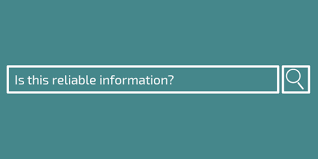The Importance of Reliable Information
Reliable information serves as the cornerstone of informed decision-making, critical thinking, and a well-functioning society. In today’s fast-paced digital age, where information is abundant and easily accessible, the need for accuracy and trustworthiness has never been more crucial.
When we encounter information, whether it be news articles, research studies, or educational content, we rely on its reliability to shape our understanding of the world around us. Without reliable sources, misinformation and false narratives can spread rapidly, leading to confusion, distrust, and potentially harmful consequences.
So, what makes information reliable? Firstly, reliability stems from the credibility of its source. Established institutions, reputable experts, and verified data all contribute to the trustworthiness of information. Additionally, transparency in reporting methods and acknowledgement of potential biases further enhance reliability.
Furthermore, cross-referencing information with multiple sources can help validate its accuracy and reduce the risk of falling victim to misinformation. Fact-checking organisations play a vital role in verifying claims and debunking falsehoods to ensure that only reliable information reaches the public domain.
In a world where misinformation can have far-reaching effects on individuals and society as a whole, cultivating a culture that values and prioritises reliable information is paramount. By critically evaluating sources, fact-checking claims before sharing them, and promoting media literacy skills among all individuals, we can collectively combat the spread of unreliable information.
Ultimately, embracing reliable information not only empowers us as individuals to make informed choices but also fosters a more informed and resilient society capable of navigating the complexities of our interconnected world.
Six Essential Tips for Ensuring Reliable Information
- Check the source of the information and ensure it is reputable and trustworthy.
- Look for information from experts or authoritative sources in the relevant field.
- Cross-reference information from multiple reliable sources to verify its accuracy.
- Be cautious of information that seems too good to be true or overly sensationalized.
- Consider the date of the information to ensure it is current and up-to-date.
- Evaluate the supporting evidence provided for any claims or statements made in the information.
Check the source of the information and ensure it is reputable and trustworthy.
When seeking reliable information, it is essential to check the source and verify its credibility and trustworthiness. By ensuring that the source is reputable, one can significantly reduce the risk of encountering misinformation or biased content. Reliable sources, such as established institutions or experts in the field, provide a solid foundation for making informed decisions and forming accurate perceptions of the world around us. It is through this critical evaluation of sources that we can uphold the integrity of information and promote a culture of trust and reliability in our quest for knowledge.
Look for information from experts or authoritative sources in the relevant field.
When seeking reliable information, it is essential to look for insights from experts or authoritative sources within the relevant field. Experts possess in-depth knowledge and expertise that can provide valuable and accurate information on a particular subject. By consulting authoritative sources, individuals can access trustworthy data and analysis that is backed by credibility and experience. Relying on experts ensures that the information obtained is well-informed, reliable, and can contribute to making informed decisions based on sound evidence and expertise.
Cross-reference information from multiple reliable sources to verify its accuracy.
Cross-referencing information from multiple reliable sources is a crucial step in ensuring the accuracy and credibility of the information we encounter. By consulting various sources that are known for their trustworthiness and expertise, we can validate the information, identify any discrepancies or biases, and gain a more comprehensive understanding of the topic at hand. This practice not only helps us make well-informed decisions but also strengthens our ability to discern between reliable information and misinformation in an era where the spread of false narratives is prevalent.
Be cautious of information that seems too good to be true or overly sensationalized.
When navigating the vast landscape of information, it is essential to exercise caution when encountering content that appears too good to be true or excessively sensationalised. Such information often aims to capture attention through exaggerated claims or promises, leading to potential misinformation and deception. By remaining vigilant and critically evaluating the credibility and sources of such content, individuals can protect themselves from falling prey to misleading information and ensure that they base their decisions on reliable and trustworthy sources.
Consider the date of the information to ensure it is current and up-to-date.
When assessing the reliability of information, it is crucial to consider the date of the content to guarantee its currency and accuracy. Ensuring that the information is current and up-to-date is essential in today’s rapidly evolving landscape, where new developments and updates can significantly impact the validity of data. By prioritising recent sources, individuals can make well-informed decisions based on the most relevant and timely information available.
Evaluate the supporting evidence provided for any claims or statements made in the information.
When assessing the reliability of information, it is essential to scrutinise the supporting evidence presented for any claims or statements. By evaluating the quality and credibility of the evidence provided, one can determine the validity and trustworthiness of the information at hand. Strong supporting evidence enhances the overall reliability of a piece of information, reinforcing its accuracy and ensuring that informed decisions are based on sound foundations.




